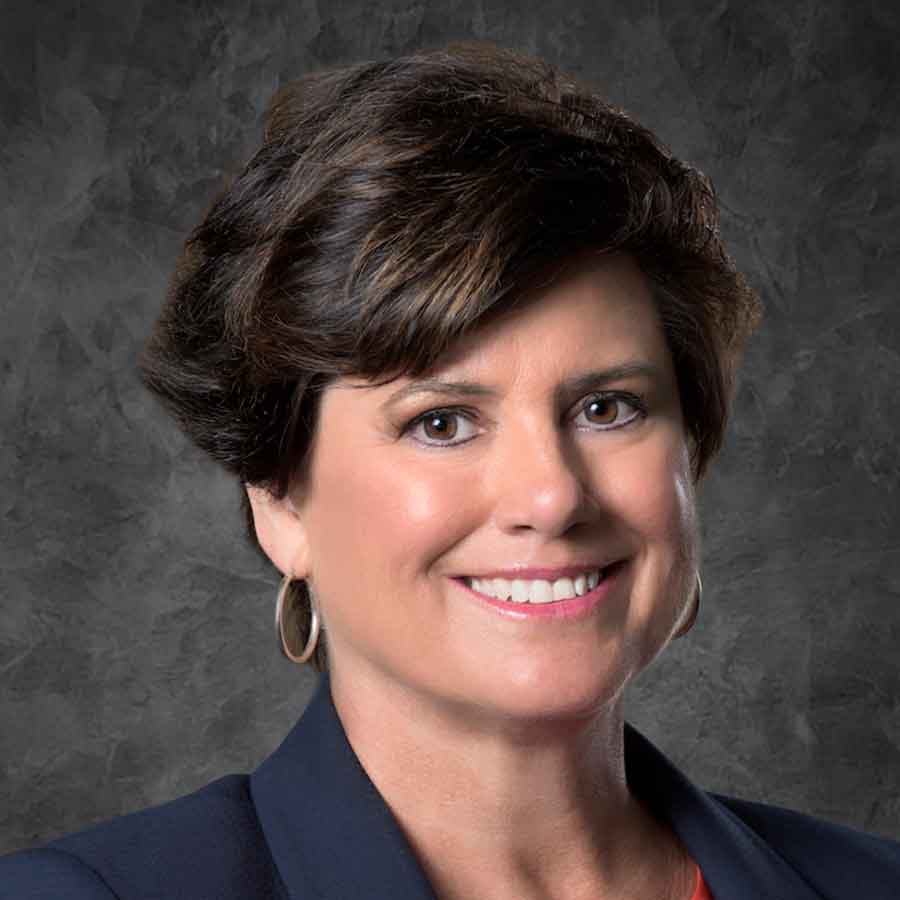When can you enjoy everything you’ve worked for?
Welcome to a different kind of wealth management in Atlanta
We get you to think about money like you’ve never thought about it before
Has rolling up your sleeves, working hard, and building success always been part of your DNA? Then we believe Mercer Advisors is the wealth management firm for you.
Because we’re here to help you keep building on that success. But at the same time, we fundamentally believe there’s a point in life where the wealth-builder in you deserves to become the wealth-enjoyer of all you’ve attained.
We’re built differently
Because to us, helping you protect and grow your wealth is about much more than just your investment portfolio
Of course, a well-managed investment portfolio is the cornerstone to building wealth. And we strive to do that exceptionally well.
But if returns are your sole focus, those returns can quickly be offset by what happens in the other parts of your financial life. Like not preparing for major taxable events, having an incomplete estate plan, a retirement plan that’s on autopilot, or a less than ideal business succession strategy.
So, unlike most firms, we have expertise across financial planning, investing strategy, tax and estate planning, trust services, insurance coverage, and more. With specialists across each of these areas communicating with each other about you, and with you.
Put simply, we help oversee and connect all the dots of your financial life.
Meet our talented wealth advisors in the Atlanta area
They’re here to help you connect all your financial dots
Cathy Miller
Sr. Wealth Advisor, Sr. Director

Cathy Miller
Sr. Wealth Advisor, Sr. Director
MBA, CFP®, CDFA®, CRPS®
Cathy C. Miller began her career in financial planning in 1987, and co-founded Atlanta Financial Associates in 1992, a successful RIA which merged with Mercer Advisors in 2020. She specializes in working with individuals facing complex transitions, such as high-net-worth individuals transitioning into retirement, business owners planning their exit, or individuals facing divorce or the death of a spouse.
Cathy’s passion for helping others in their financial lives began when, at age 23, she lost her mother to a drunk driver. As she watched her father struggle to understand and take over the family finances while dealing with the loss of his life partner, she realized what a difference a financial advisor would have made in her family’s life.
Cathy has recently been featured on the 2021 Forbes list of America’s Top Women Wealth Advisors,* and is a multi-year recipient of the Women’s Choice Award® for Financial Advisors** (2014-2021), a distinction given to a select number of advisors in Georgia and across the nation. She has often been featured in the Wall Street Journal for receiving the Five Star Professional Wealth Manager*** award (2012-2021). She has been sought after for her experience and knowledge by various media outlets and has been quoted in publications including the Atlanta Business Chronicle, Atlanta Journal Constitution, The Wall Street Journal and FP Magazine. She has earned her CERTIFIED FINANCIAL PLANNER™ certification, Chartered Retirement Plans SpecialistSM (CRPS®) designation, and Certified Divorce Financial Analyst (CDFA®) designation.
Cathy has a special passion for developing leadership opportunities for young women. In support of that, she is currently the Treasurer and serves on the Board and Executive Committee of Girl Scouts of Greater Atlanta, and is an enthusiastic participant in Girl Scouts’ Camp CEO, which partners C-suite women as mentors with high school girls.
Cathy graduated magna cum laude and Phi Beta Kappa from The College of William & Mary. She then attended the University of North Carolina at Chapel Hill, where she earned a Master of Business Administration (MBA) while graduating second in her class.
Please Note: Limitations. Neither rankings and/or recognitions by unaffiliated rating services, publications, media, or other organizations, should be construed by a client or prospective client as a guarantee that he/she will experience a certain level of results if Mercer Advisors is engaged, or continues to be engaged, to provide investment advisory services. Rankings published by magazines, and others, generally base their selections exclusively on information prepared and/or submitted by the recognized adviser. Rankings are generally limited to participating advisers (see participation criteria/methodology). Unless expressly indicated to the contrary, Mercer Advisors did not pay a fee to be included on any such ranking. No ranking or recognition should be construed as a current or past endorsement of Mercer Advisors by any of its clients.
*The ranking of the Forbes “Top Women Wealth Advisors” and “Best-In-State Wealth Advisors,” was developed by SHOOK Research and is based on in-person and telephone due diligence meetings to evaluate each advisor qualitatively, a major component of a ranking algorithm that includes: client retention, industry experience, review of compliance records, firm nominations; and quantitative criteria, including: assets under management and revenue generated for their firms. Investment performance is not a criterion because client objectives and risk tolerances vary, and advisors rarely have audited performance reports. Rankings are based on the opinions of SHOOK Research, LLC and not indicative of future performance or representative of any one client’s experience. Neither Forbes nor SHOOK Research receive compensation in exchange for placement on the ranking. For more information: www.SHOOKresearch.com.
**The Women’s Choice Award® Financial Advisor program was created by WomenCertified Inc., the Voice of Women, in an effort to help women make smart financial choices. The Women’s Choice Award Financial Program is based on 17 objective criteria associated with providing quality service to women clients, such as credentials, experience, and a favorable regulatory history, among other factors. Financial advisors do not pay a fee to qualify for the program. The inclusion of a financial advisor within the WCA Financial Advisor network should not be construed as an endorsement of the financial advisor by WomenCertified Inc. or its partners and affiliates and is no guarantee of future investment success.
***Based on 10 objective eligibility and evaluation criteria, including a minimum of 5 years as an active credentialed financial professional, favorable regulatory and complaint history, accepts new clients, client retention rates, client assets administered, education, and professional designations. In 2021, 3,254 Atlanta-area wealth managers were considered for the award; 265 (8% of candidates) were named 2021 Five Star Wealth Managers. These awards are not indicative of the wealth manager’s future performance. Your experiences may vary. For more information, please visit. www.fivestarprofessional.com.
Certified Financial Planner Board of Standards, Inc. (CFP Board) owns the CFP® certification mark, the CERTIFIED FINANCIAL PLANNER™ certification mark, and the CFP® certification mark (with plaque design) logo in the United States, which it authorizes use of by individuals who successfully complete CFP Board’s initial and ongoing certification requirements. The CDFA® mark is the property of The American College, which reserve sole rights to its use, and is used by permission. Chartered Retirement Plan SpecialistSM and CRPSSM are trademarks or registered service marks of the College for Financial Planning in the United States and/or other countries.
Christopher Blackmon
Sr. Wealth Advisor, Director

Christopher Blackmon
Sr. Wealth Advisor, Director
Chris joined Mercer Advisors in 2020. Prior to joining Mercer Advisors, Chris worked as an audit manager for PricewaterhouseCoopers and as a partner at Atlanta Financial Associates.
Chris graduated from the University of Alabama with a Master’s of Accountancy degree. He is a licensed Certified Public Accountant in the state of Georgia and a CERTIFIED FINANCIAL PLANNER™ professional and received the Five Star Professional Wealth Manager award in 2020*.
Chris enjoys helping his clients achieve their financial goals through a collaborative process. Chris’s background allows him to help clients identify tax mitigation strategies within their financial plans.
*Based on 10 objective eligibility and evaluation criteria, including a minimum of 5 years as an active credentialed financial professional, favorable regulatory and complaint history, accepts new clients, client retention rates, client assets administered, education, and professional designations. In 2020, 3,314 Atlanta wealth managers were considered for the award; 268 (8% of candidates) were named 2020 Five Star Wealth Managers. These awards are not indicative of the wealth manager’s future performance. Your experiences may vary. For more information, please visit. www.fivestarprofessional.com.
These awards should not be construed by clients or prospective clients as a guarantee that they will experience a certain level of results if Mercer Advisors is engaged, or continues to be engaged, to provide investment advisory services, nor should it be construed as a current or past endorsement of Mercer Advisors by any of its clients.
Andrew Medders
Sr. Wealth Advisor, Director

Andrew Medders
Sr. Wealth Advisor, Director
Andrew began his wealth management career in 2006 after five years of serving in the United States Navy leading a submarine warfare and search and rescue team. Andrew spent the first 11 years of his career with Fidelity Investment. Just prior to joining Mercer Advisors, Andrew spent four years at Kays Financial Advisory Corporation, where, as a Principal and Senior Financial Advisor, he prepared comprehensive financial plans and developed customized investment portfolios for his clients. Andrew graduated from Liberty University with a Bachelor’s of Science in Business Administration and a concentration in financial planning and he is a CERTIFIED FINANCIAL PLANNER™ professional. Outside of work, Andrew and his wife Erika spend much of their time outdoors hiking and camping with their three children and are active members at the Square Church in Smyrna.
Brian Sullivan
Sr. Wealth Advisor, Director

Brian Sullivan
Sr. Wealth Advisor, Director
CFP®, MBA, EA
Brian began his investment advisory career in 1993. Prior to joining Mercer Advisors, he gained diverse experience addressing the needs of high-net-worth individuals, charitable organizations, and corporations as an investment advisor at Bank of America Merrill Lynch and more recently at a small boutique advisory firm. Brian's areas of expertise include retirement planning, asset allocation, and tax advantaged investments. He received his undergraduate degree in Government from Hamilton College and his MBA from Kennesaw State University. Brian also holds the FINRA Series 65 license and is an IRS Enrolled Agent.
Sarah Cannon
Wealth Advisor, Director

Sarah Cannon
Wealth Advisor, Director
Sarah enjoys helping her clients discover the why of their wealth. Born and raised in Atlanta, GA, she earned her degree from the University of Georgia in business economics. She began her career in wealth management in Dallas, TX before moving home to join Resource Planning Group, later acquired by Mercer Advisors. Sarah is passionate about working with young professionals and families who are trying to navigate a multitude of pivotal financial decisions at the busiest time of their lives. She finds satisfaction bringing all the pieces of a financial puzzle together to create a plan that reflects the uniqueness of each person. Sarah is the NexGen Director for the Financial Planning Association of GA and an active member in her church. She is an avid puzzler, enjoys audiobooks and traveling with her husband, Chris.
Alan Thomson
Sr. Wealth Advisor

Alan Thomson
Sr. Wealth Advisor
For the past 25 years, Alan has provided wealth management services to a diverse group of clients. From retirees to mid-career professionals to young families at the start of their financial lifecycles, he meets clients where they are and provides the type of coaching and guidance that they need. He is grateful to serve a wonderful group of clients who find value in thoughtful, strategic, financial counsel. Through the years, he has been honored to have served individuals who are exceptionally good at what they do, from business executives, surgeons and management consultants to diligent lifetime savers. Alan graduated from Davidson College in 1997 with a bachelor’s degree in psychology and a lifelong love of learning, pick-up basketball and his wife, Dayna – not in that order. Dayna and Alan reside in Johns Creek with their three children and three dogs.
John Evans
Sr. Wealth Advisor

John Evans
Sr. Wealth Advisor
John Howard
Sr. Wealth Advisor

John Howard
Sr. Wealth Advisor
John has been helping affluent families grow, protect, and pass on their wealth for more than 40 years. He began his career as an auditor for Arthur Andersen & Company. After becoming a CPA, he attended Emory University School of Law, graduating in 1980. He then founded and subsequently sold a CPA firm to establish Resource Planning Group, one of the first fee-only® financial planning practices in Georgia. That firm was acquired by Mercer on December 1, 2022. John is the proud father of seven awesome children, including a disabled son, Jack. He obtained his ChSNC® designation in 2016 and is passionate about assisting special needs families improve the quality of their life financially. In his spare time, John is an avid fly fisher.
Rick Henderson
Sr. Wealth Advisor

Rick Henderson
Sr. Wealth Advisor
CFP®, AIF®
Rick helps his clients build confidence, security, and the independence they seek regarding their finances. He works collaboratively with clients and their advisor teams helping them build and protect their wealth, reduce taxes, and take care of the people and organizations they cherish most.
Rick began his career in tax with Arthur Andersen. Rick is a CPA, CERTIFIED FINANCIAL PLANNER™ professional, and Accredited Investment Fiduciary (AIF®). After becoming a financial advisor in 1990, he founded Cornerstone Financial in 1999, then merged with Atlanta Financial in 2012. Atlanta Financial joined Mercer Advisors at the end of 2020.
Rick graduated from Furman, is married and has two daughters with his wife. Rick enjoys spending time with friends and family, exercise, traveling, and playing golf.
Harrison Fant
Sr. Wealth Advisor

Harrison Fant
Sr. Wealth Advisor
CFP®, AIF®
Harrison joined Mercer Advisors via the Atlanta Financial Associates acquisition in 2020, having worked with AFA for over six years. He specializes in financial planning, investment management, and tax and estate strategies for high-net-worth clients. He's also passionate about mentoring younger associates in the Mercer Advisors team. Harrison graduated from the University of Georgia Terry College of Business in 2013 with a BBA in finance (Go Dawgs!). He's a CERTIFIED FINANCIAL PLANNER™ professional as well as an Accredited Investment Fiduciary® designee. Harrison lives in Roswell with his wife and two daughters. Harrison says he and his wife get along 364 days of the year, with the exception being the annually contentious Georgia-Auburn game.
Richard Brad Mundy
Sr. Wealth Advisor

Richard Brad Mundy
Sr. Wealth Advisor
CFP®, CPA
Brad began his financial services career in 2009, after spending nearly three years working in public accounting. Prior to joining Mercer Advisors, Brad worked for Kays Financial Advisory Corporation (acquired by Mercer Advisors), Fidelity Investments and AYCO, a Goldman Sachs Company. Brad provides financial and investment advice and comprehensive financial planning (i.e. investment planning, retirement planning, risk management, tax planning, cash flow planning and management, and estate planning). Brad earned a Bachelor of Science Degree in Accounting from Western Kentucky University. Brad is also a CERTIFIED FINANCIAL PLANNER™ professional and a Certified Public Accountant. Outside of work, Brad enjoys watching sports, playing golf and spending quality time with his wife and two sons.
Alan McKnight
Sr. Wealth Advisor

Alan McKnight
Sr. Wealth Advisor
DBA, CFP®
Alan began his wealth management career in 1996 and was Principal and Senior Advisor with Kays Financial Advisory Corporation before joining Mercer Advisors. He is a CERTIFIED FINANCIAL PLANNERTM professional, and he is well-versed in investment management, retirement income and distribution planning. He graduated from the University of Florida with a Doctor of Business Administration in Finance and a Master of Business Administration in Finance from Kennesaw State University. Alan is also a part-time Adjunct Finance Faculty at Southern New Hampshire University and the University of Maryland Global Campus where he teaches in their CFP® Board Registered programs.
We’ll team you up
with one of our talented wealth advisors who’ll help you connect all your financial dots
We’ll touch base to discuss your individual needs so that we can connect you with a wealth advisor who’s right for you.
By submitting this information, you are selecting to receive promotional communications from the Mercer Advisors team.
Please Note: The achievement of any professional designation, certification, degree, or license should not be construed by a client or prospective client as a guarantee that he/she will experience a certain level of results or satisfaction if Mercer Advisors is engaged, or continues to be engaged, to provide investment advisory services.